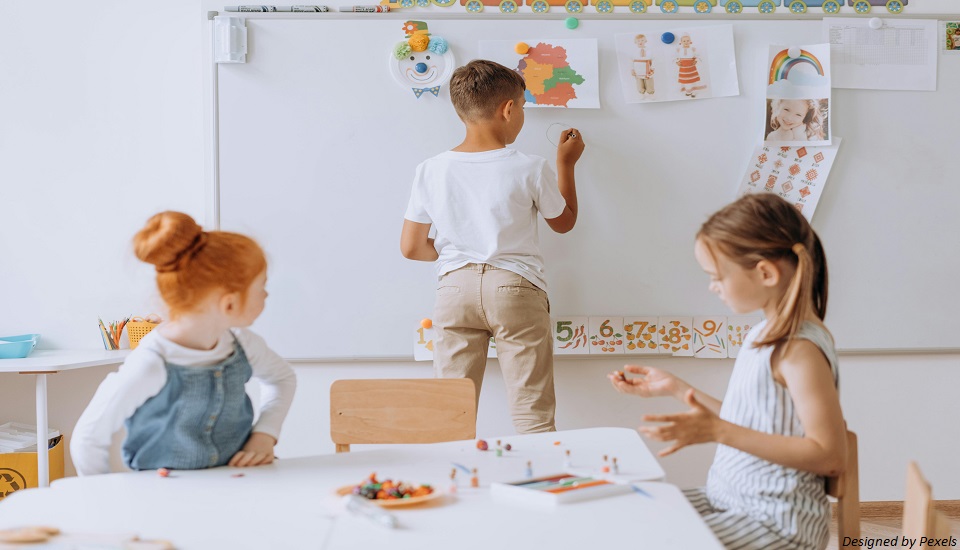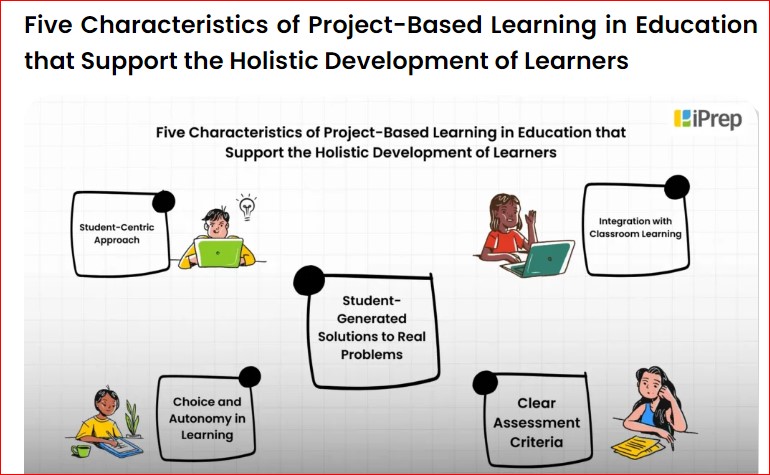Project Based Learning: Understanding Its Benefits And Implications
14th May 2024

In a full inclusion classroom, project-based learning is a great approach to differentiate education, especially for students with a broad range of skills, such as talented kids or those with developmental or cognitive disabilities. In resource rooms or standalone classrooms where students have adequate help or accommodations, or who are usually developing partners, project-based learning is also very effective. Keep reading on to learn how to leverage project-based learning to empower students with a sense of purpose, academic knowledge and tackle challenges head on.
What Is Project Based Learning?
PBL is an approach that promotes learning by having students actively research and address challenging issues, questions, or obstacles. In addition to mastering the material, students must also acquire vital abilities like cooperation, communication, and problem-solving, all of which are necessary for success in the twenty-first century.

PBL is based on several fundamental ideas:
- Real-World Connection
Because projects are based on actual issues or difficulties, learning is relevant and authentic.
- Sustained Injury
Students research topics that pique their interest, which encourages learning and inquiry.
- Constructive Investigation
By examining a variety of sources and points of view, students may build their own meaning and knowledge.
- Collaboration
Small-group work is a common component of PBL, encouraging cooperation and teamwork.
- Reflection
Students must to be given frequent chances to consider the methods and results of their education.
PBL and conventional teaching techniques are very different from one another. PBL is centered on practical experiences, peer conversations, and open-ended assignments, whereas the latter frequently depends on textbooks, lectures, and standardized assessments. Teachers adopt a more facilitative and coaching role rather than merely dispensing knowledge in this naturally student-driven approach.
Do you follow us on Social Media? We regularly share upgraded educational content, tips, feedback, and more. Check us out by clicking the profiles here - Facebook / Twitter / LinkedIn / Pinterest / Instagram / YouTube
5 Strategies To Incorporate Project-Based Tasks In The Classroom
Here are a few things you can do to ensure inclusive PBL strategies for your special education students:
1. Adapt Project Tasks
Adjust project assignments to meet the needs of different skill levels so that every student may participate actively. This might entail changing the project's objectives or providing substitute ways to contribute.
2. Leverage Assistive Technologies
Make use of assistive technology to make PBL activities more accessible. Accessible tools such as software for text-to-speech and visual organizers can help students with varying requirements complete tasks.
3. Creating Diverse Teams
Create diversified project teams where students may play to their strengths and learn from one other in an atmosphere that values individual diversity.
4. Offer Support And Scaffolding
Throughout the project, provide scaffolding and organized support. To help students through the project process, this might involve one-on-one meetings, checklists, and frequent feedback sessions.
5. Implement Universal Design For Learning
When developing a PBL, use UDL concepts to offer many channels for participation, representation, action, and expression. This guarantees that PBL exercises are initially available to the widest possible spectrum of students.
What Are The Benefits Of Project Based-Learning In Special Education?
PBL can provide an equitable learning environment for students of all skill levels in a dynamic and adaptable setting.
Let's examine the use of Project-Based Learning (PBL) within special education classrooms:
- Enhanced Motivation And Engagement
Student engagement is automatically increased by project-based learning since it is participatory and personalized. Students' motivation surges when they discover meaning in their work, whether it be developing a mobile app, building a communal garden, or producing a multimedia presentation. Given that kids in special education may have a variety of interests and learning requirements or styles, intrinsic motivation is especially effective in this setting.
- Development Of Critical Skills
Students constantly refine important life skills, such self-direction, organization, and time management, by working on projects that demand extended study. PBL may be, to put it mildly, utterly revolutionary for kids with special needs, who frequently encounter difficulties in these areas.
- Improved Communication And Collaboration
PBL group projects provide students with disabilities lots of chances to work together with peers, instructors, and community members. They gain communication skills, interpersonal listening abilities, and teamwork abilities—all of which are critical in both academic and professional contexts.
- Ownership Of Learning
PBL's central idea is that it gives students complete control over the learning process. They choose which resources to employ, how to approach an issue, and how to communicate their results. It is challenging to get this sense of ownership and achievement over their education using traditional approaches, yet autonomy fosters it.
Transform Your Learning With PBL
Project-based learning has truly revolutionary potential for special education. By adopting these strategies, you may enable your students to acquire the knowledge and abilities necessary to manage a world that is always changing, in addition to helping them learn academic subject. So, are you prepared to go headfirst into PBL? Start small with an offline or Online Special Education Courses and see for yourself how this cutting-edge teaching approach can change lives.
We believe education should be accessible for everyone. That’s why we don’t charge for our blogs. Find the right course that will help you in your career with us, contact us at - 91-6292150868. You can mail us at act@asiancollegeofteachers.com

